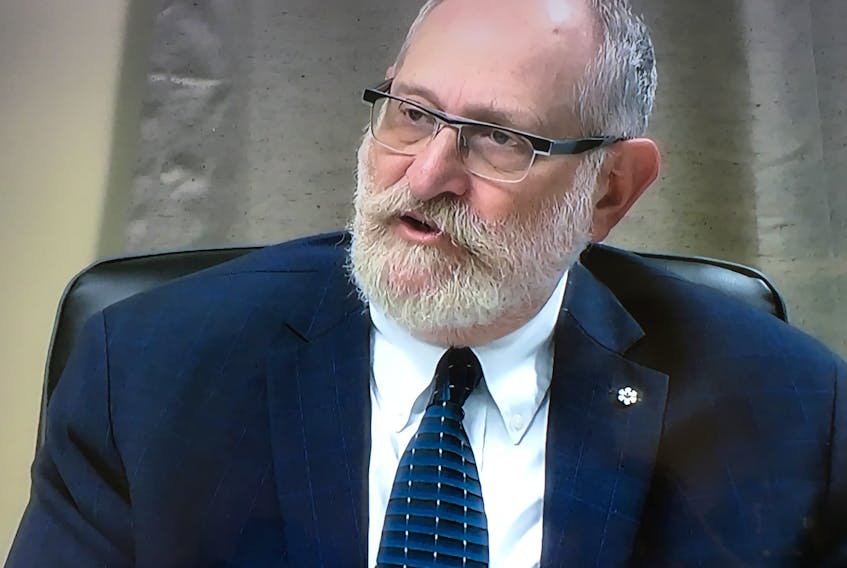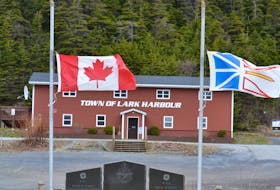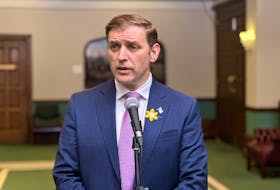After 139 days of witness testimony from 134 witnesses (some witnesses appeared more than once, but are counted only once), and more than 4,600 documents entered into evidence, the Muskrat Falls Inquiry is nearly at a close.
Commissioner Richard LeBlanc offered the brief accounting on Friday, after hearing from University of Toronto professor Mel Cappe, as the final hearing of “Phase 3” wrapped up.
LeBlanc offered his thanks to the co-operation of all lawyers involved in the inquiry, but also inquiry staff, who have shepherded the inquiry while digging through nearly six million written records (5,932,000).
He actually commented on the demands of the proceedings from a more personal level earlier this week, while speaking to the timeline set around a study requested from Memorial University of Newfoundland (MUN) associate professor Kelly Blidook.
“I think the last six months have probably been the busiest time for me in my whole legal and judicial career, and I’m sure for many of you sitting in front of me you’re feeling the same way,” he said, speaking to the progression of the schedule.
The inquiry is not over just yet. On July 30 in St. John’s, from 7 p.m. to 9 p.m. at Memorial University of Newfoundland’s Signal Hill Campus, and on August 8, at the same time, at the Lawrence O’Brien Arts Centre in Happy Valley-Goose Bay, there will be public consultations sessions. The inquiry is accepting comments from the public, for consideration.
The public session will then finish with closing submissions from parties with standing, from Aug. 12-16 in Happy Valley-Goose Bay.
LeBlanc will have until the end of the year to complete his review work and file his final report.
From when it was established on Nov. 20, 2017, to the end of June 2019 (per the most recent cost update), the inquiry itself has cost $13.1 million. That does not include all costs to the public purse, but the commission so far remains within the expected budget.
Enhancing the public service
Setting the stage for possible recommendations from LeBlanc, the most recent hearings have covered the expectations placed on the provincial public service and offered evidence of possible problems on the ground day-to-day.
The final witness, Cappe, a professor at the Munk School of Global Affairs, an officer of the Order of Canada and former federal deputy, offered a clear picture on the differences between the ranks. Through a formal presentation and response to questions, he tried to crystallize what should be expected, and how public servants can be supported, for best advice and best outcomes.
He suggested a balance is needed between openness in government and privacy, offering space for open deliberation and consultation with senior civil servants, who may want to offer comments suggesting a different approach to a policy decision or a different decision.
It’s senior civil servants, he said and noted in his presentation, who must work to expose risks, advise government on what risks to take, advise on managing risks and getting risk management efforts in place.
Government of Newfoundland and Labrador lawyer Peter Ralph asked Cappe for what advice he would offer, when it came to protecting and enhancing the role of senior civil servants as honest, matter-of-fact advisors.
“Well one of the things you can do is have an inquiry that’s going to look at past judgement and decisions and set new standards,” he said, suggesting he’d expect plenty of attention from the civil service to the ongoing Muskrat Falls Inquiry.
“So you set some standards by saying if you don’t do that (work), here are the consequences,” he said.
As an example scenario, he suggested a member of a federal department who turned a blind eye to a rogue official.
Cappe spoke to some of the repeat issues from the inquiry’s third phase, including access to information, the duty to document and communication between government staffers. On the latter, LeBlanc asked about a situation where staff weren’t communicating between silos.
“You have to give people responsibility, but you have to give them direction,” Cappe said.
RELATED:









